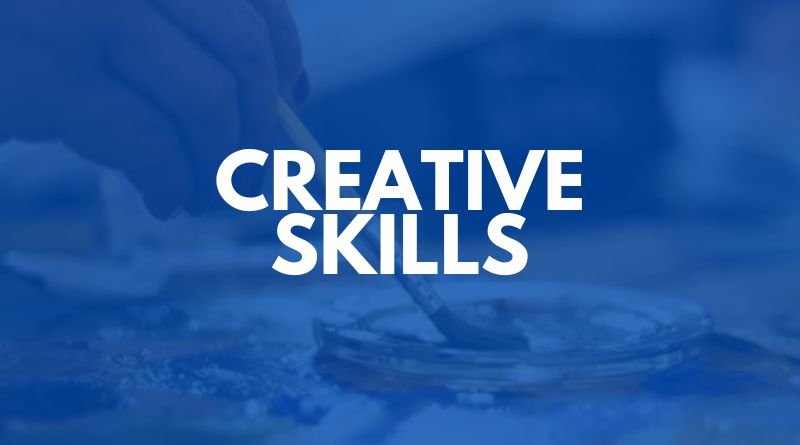How to Learn Creative Skills: Tips and Tricks
Are you interested in learning creative skills but don’t know where to start? Whether you want to become a better writer, artist, or musician, there are certain steps you can take to develop your abilities and unleash your creative potential.

In this article, we’ll share some tips and tricks to help you learn and grow your creative skills.
Free Skillshare Premium for One Month
Introduction
Creative skills are essential for personal and professional growth. They allow you to express yourself, solve problems, and think outside the box. However, learning creative skills is not always easy. It requires dedication, hard work, and a willingness to try new things.
In this article, we’ll discuss some effective strategies for learning creative skills that you can use to improve your abilities and reach your goals.
Understanding creativity
Before you start learning creative skills, it’s essential to understand what creativity is and how it works. Creativity is the ability to generate new ideas, concepts, or solutions that are original, useful, and valuable.
It involves a combination of skills, such as observation, imagination, curiosity, and experimentation. By understanding the nature of creativity, you can better appreciate the value of your own ideas and identify areas for improvement.
Finding inspiration
One of the most challenging aspects of learning creative skills is finding inspiration. Creativity requires fresh ideas and perspectives, and it can be challenging to come up with them on your own.
To find inspiration, look for new experiences, explore different cultures and viewpoints, and read books or watch movies that challenge your assumptions.
You can also seek out the work of other creatives and learn from their techniques and processes.
Experimenting with different techniques
Experimentation is crucial to developing creative skills. It allows you to explore new ideas and techniques and discover what works best for you.
Try out different mediums, styles, and approaches, and don’t be afraid to make mistakes.
Remember that every failure is an opportunity to learn and grow.
Developing a creative routine
Creating a routine can help you stay focused and consistent in your creative practice. Schedule regular blocks of time for your creative work, and commit to them as you would any other appointment.
Set specific goals and deadlines for yourself, and track your progress along the way.
By creating a routine, you’ll be more likely to make progress and see results.
Learning from others
Learning from others is an excellent way to develop your creative skills. Seek out mentors or peers who can offer guidance and feedback.
Attend workshops or classes, read books or articles, or watch videos that teach you new techniques and processes.
By learning from others, you can gain new perspectives and improve your abilities.
Practicing regularly
Practice is the key to developing any skill, and creative skills are no exception. The more you practice, the better you’ll become.
Dedicate time every day or week to your creative practice, even if it’s only for a few minutes. Consistency is more important than quantity, so make sure to stick to your routine.
Overcoming creative blocks
Creative blocks are inevitable, but they don’t have to stop you in your tracks. If you’re feeling stuck or uninspired, try changing your environment, taking a break, or working on a different project.
Sometimes, stepping away from your work can help you come back with fresh ideas and renewed energy.
Dealing with self-doubt
Self-doubt is a common obstacle for many creatives. It’s easy to doubt your abilities or question whether your work is good enough. To overcome self-doubt, focus on the process of creating rather than the outcome.
Remember that everyone makes mistakes and that failure is a natural part of the creative process.
Building confidence
Building confidence in your creative abilities takes time and practice. Celebrate your successes, no matter how small, and learn from your failures. Surround yourself with supportive people who believe in you and your work.
And remember that confidence comes from within, so don’t let external validation be your sole source of motivation.
Sharing your work
Sharing your work with others can be intimidating, but it’s an essential part of the creative process. It allows you to get feedback, connect with other creatives, and build a community around your work.
Share your work online, attend events or workshops, or join a critique group to get constructive feedback on your work.
Receiving feedback
Receiving feedback can be difficult, but it’s necessary for growth and improvement. When receiving feedback, try to stay open-minded and receptive to constructive criticism.
Remember that feedback is not a personal attack, but rather an opportunity to learn and grow.
Embracing failure
Failure is a natural part of the creative process. It’s essential to remember that every failure is an opportunity to learn and grow. Don’t be afraid to take risks and try new things, even if it means making mistakes along the way.
Embracing failure can help you develop resilience and perseverance.
Staying motivated
Staying motivated can be challenging, especially when you’re not seeing immediate results. To stay motivated, set realistic goals, celebrate your successes, and focus on the process rather than the outcome.
Surround yourself with supportive people who believe in you and your work, and take breaks when you need them.
Conclusion
Learning creative skills takes time, dedication, and a willingness to try new things. By understanding the nature of creativity, finding inspiration, experimenting with different techniques, and practicing regularly, you can develop your abilities and unleash your creative potential. Remember to stay open-minded, embrace failure, and stay motivated along the way.
Note: We may get compensated if you buy something following the links on this website

